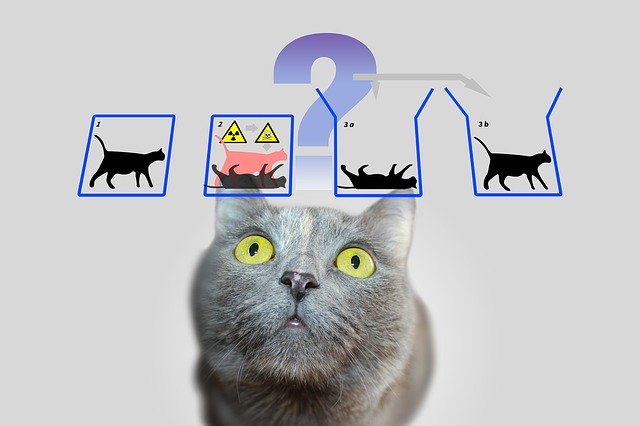
Can two articles about aspects of Schrödinger’s work exist in the literature at the same time if they have plagiarized from other papers about the same subjects?
The first paper, “Fixed point theorems for solutions of the stationary Schrödinger equation on cones,” appeared in 2015 and was written by Gaixian Xue, of Henan University of Economics and Law in China, and Eve Yuzbasi, of Istanbul University. According to the retraction notice, from Fixed Point Theory and Applications:
The Editors-in-Chief have retracted this article because the results presented are invalid. The article also shows significant overlap with a number of previously published articles [2, 3, 4, 5] and evidence of both peer review and authorship manipulation.
The authors have not responded to any correspondence regarding this retraction.
The references cited are:
2. Qiao, L., Deng, G.-T.: Taiwan. J. Math. 15(5), 2213–2233 (2011). https://projecteuclid.org/euclid.twjm/1500406431
3. Qiao, L., Deng, G.: Integral representation for the solution of the stationary Schrödinger equation in a cone. Math. Nachr. 285, 2029–2038 (2012). https://doi.org/10.1002/mana.201100251
4. Qiao, L., Su, B.-Y., Deng, G.-T.: Taiwan. J. Math. 16(5), 1733–1748 (2012). https://projecteuclid.org/euclid.twjm/1500406793
5. Li, Z., Ychussie, B.: Fixed Point Theory Appl. 2015, 89 (2015). https://doi.org/10.1186/s13663-015-0342-1
The second article, in Boundary Value Problems, bears the exquisitely ironic title “Existence and uniqueness of solutions for the Schrödinger integrable boundary value problem.” It was published in 2018 by a trio of authors from China and Malaysia.
Per the retraction notice:
The Editors-in-Chief have retracted this article [1] because it shows evidence of peer review manipulation. In addition, it overlaps significantly with an article by Sun et al. [2] that was simultaneously under consideration with another journal. The authors have not responded to any correspondence from the publisher regarding this retraction.
According to a spokesperson for Fixed Point Theory and Applications — a Springer publication, along with the others named in this post:
An indexing service identified an incidence of textual overlap between two articles that were published at around the same time in 2017, and were retracted in May and June 2019. Following this discovery, we started an investigation which has uncovered a number of potentially problematic articles … We are currently investigating these articles and, as this investigation is ongoing …
The inquiry has led to at least two other retractions. One involves a 2017 paper in Boundary Value Problems titled “New Riesz representations of linear maps associated with certain boundary value problems and their applications.” Per the notice:
The Editors-in-Chief have retracted this article [1] because the results of the article are invalid. The article also shows significant overlap with an article by Tan et al. [2] that was simultaneously under consideration with another journal. Additionally, this article showed evidence of authorship and peer review manipulation. The authors have not responded to any correspondence with regard to this retraction.
The Tan paper is:
Tan, Y., An, Y., Wang, H., et al.: A sharp Trudinger type inequality for harmonic functions and its applications. J. Inequal. Appl. 2017, 250 (2017). https://doi.org/10.1186/s13660-017-1522-9
It, too, has been retracted, with an identical notice to the article above.
No cats suffered in the writing of this post.
Like Retraction Watch? You can make a tax-deductible contribution to support our work, follow us on Twitter, like us on Facebook, add us to your RSS reader, or subscribe to our daily digest. If you find a retraction that’s not in our database, you can let us know here. For comments or feedback, email us at [email protected].